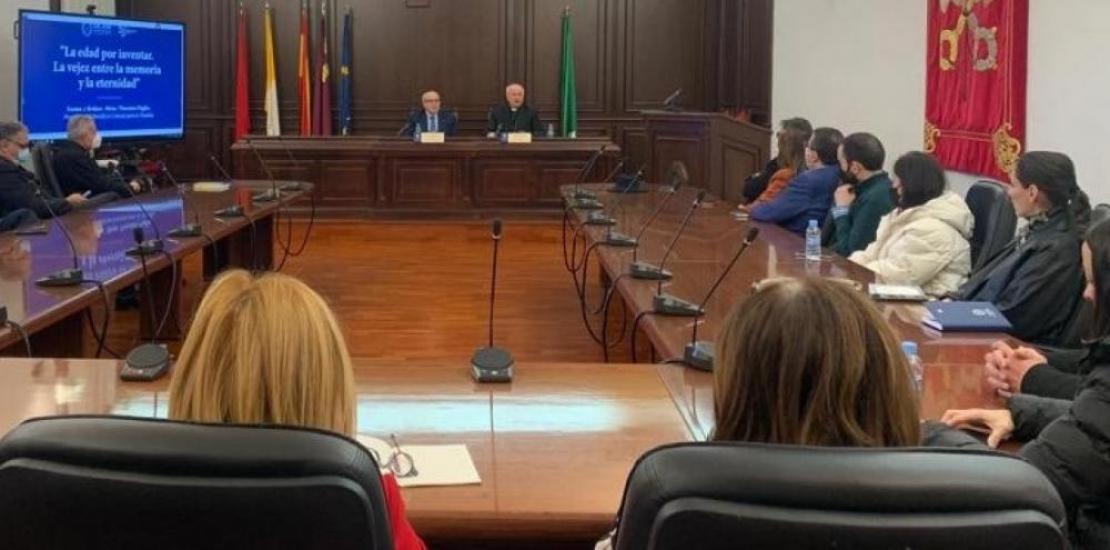The Holy See and UCAM promote measures to assist the elderly
The president of the Pontifical Academy for Life, Vincenzo Paglia, has explained that the Vatican and the Italian government have set up a commission to implement public policies in Italy based on the 'Charter of the Rights of the Elderly and Community Duties', drawn up by the Church; an initiative that UCAM will promote in Spain
"There are currently many more elderly people than at any other time in history. The problem is that when we grow old either physically or mentally, we are rejected. This is why it is essential to rediscover solidarity among the different generations, as the vitality of society is the convergence of them all", said Monsignor Vicenzo Paglia at the Universidad Católica de Murcia, where he gave a lecture entitled "The age that is yet to be invented. Old age in the midst of memory and eternity'.
The president of the Pontifical Academy for Life explained that the Catholic Church has drawn up the 'Charter of the Rights of the Elderly and Community Duties'. Proposals have been made to derive public policies from it, for which a mixed commission has already been created in Italy, made up of representatives of the Italian Government and the Holy See. Moreover, the Universidad Católica is going to make a proposal along the same lines to the Spanish Government. For José Luis Mendoza, president of UCAM, "it is essential that the rights of the elderly are respected and that the means are put in place so that they receive the attention they need and can live in dignity"
‘Charter of the Rights of the Elderly and Community Duties’
The document, which was presented to the deans, vice-deans and directors of the university by Monsignor Paglia together with the president of UCAM, calls for the right of the elderly to remain in their own homes for as long as possible, always properly cared for. For these senior citizens, their home is the place of their emotional attachment and their memory, their history and their experience.
It also addresses responsible care for these individuals, who have the right to participate in defining the care pathways, types of treatment as well as how health and social care shall be provided. Institutions and professionals in these fields should provide them with all the available options.
The third section of the document deals with the right to a life of active relationships. Institutions and society must avoid any form of confinement, ghettoisation or isolation that prevents them from freely interacting with people of all age groups. Furthermore, families with elderly people who wish to continue to live together should be guaranteed support.
In short, Monsignor Vincenzo Paglia explained that a true cultural revolution is needed, based on a new politics and economy. "Society sees the elderly as a burden, whereas they are an enrichment; it all depends on how we develop society. If it excludes a part of humanity, then it is defined as inhuman. We have to conquer a new humanistic perspective with all four generations", he concluded.
Monsignor Paglia defined UCAM as "a light in the midst of a world that very easily closes in on itself; here we can experience the power of faith that is transformed into culture", he pointed out that "its founder is a layman, which underlines that the power of the word of the Gospel is not the property of priests".




